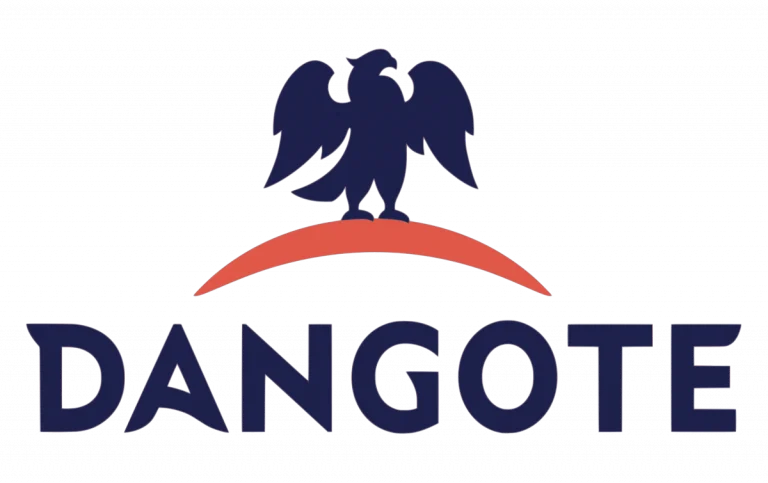Business
Court Orders Seizure Of Emirates Airline’s Aircraft Over N8m Judgment Debt

A Federal High Court sitting in Lagos on Monday ordered the seizure of an aircraft belonging to Emirates Airline over an N8.1 million judgment debt.
The order was sequel to a motion filed by Dr. Charles Mekwunye seeking the enforcement of a Supreme Court judgment in a suit between Promise Mekwunye and the airline.
In a judgment delivered on November 15, 2010, the Federal High Court held that the refusal of Emirates Airline to carry Mekwunye amounted to a breach of contract of carriage.
Consequently, the court ordered a full refund of the ticket without any deduction or charge and further granted N2.5 million in general damages and N250,000 in legal costs against the airline.
Granting the reliefs sought by Mekwunye, Justice Mohammed Liman held that “it is accordingly ordered that an attachment is hereby issued on the judgment debtor’s aircraft registered as ‘A6 Aircraft Type 77W EK: 783/784’, or any other aircraft belonging to the judgment debtor which flies into Nigeria Territory, to be arrested and detained until the judgment debt is fully paid. If there is default after 30 days, the aircraft shall be auctioned to satisfy the judgment debt.”
The judge also ordered that Emirates Airline to bear the cost of maintenance and custody of the detained aircraft.
Miss Mekwunye, who was then a student of North Texas University, Denton, Texas, United States had in 2008 dragged the airline to court for refusal of her two-way flight ticket from Dallas to Nigeria and back for no reason and for also refusing to fully refund the cost of the American Airline ticket she bought for her return trip to Nigeria.
She claimed that the airline offered no reason for its action leaving her stranded for days at the airport until she was able to secure a more expensive flight ticket on a longer route to Lagos.
Vanguard
Business
NNPCL Announces Restoration Of Escravos-Lagos Pipeline

The Nigerian National Petroleum Company Limited (NNPCL) has announced the complete restoration of the Escravos-Lagos Pipeline System (ELPS) in Warri, Delta State, following the recent explosion on the asset.
The chief corporate communications officer (CCCO) of the nation’s oil company, Andy Odeh, in a statement, said that the pipeline is fully operational, reiterating the company’s resilience and commitment to energy security.
“NNPC Limited is pleased to announce the successful restoration of the Escravos-Lagos Pipeline System (ELPS) in Warri, Delta State.
READ ALSO:Fuel Price Cut: NNPCL GCEO Ojulari Reveals Biggest Beneficiaries
“Following the unexpected explosion on December 10, 2025, we immediately activated our emergency response, deployed coordinated containment measures, and worked tirelessly with multidisciplinary teams to ensure the damaged section was repaired, pressure-tested, and safely recommissioned.
“Today, the pipeline is fully operational, reaffirming our resilience and commitment to energy security. This achievement was made possible through the unwavering support of our host communities, the guidance of regulators, the vigilance of security agencies, and the dedication of our partners and staff.
“Together, we turned a challenging moment into a success story, restoring operations in record time while upholding the highest standards of safety and environmental stewardship.
“As we move forward, NNPC Limited remains steadfast in its pledge to protect our environment, safeguard our communities, and maintain the integrity and reliability of our assets. Thank you for your trust as we continue to power progress for Nigeria and beyond,” the statement read.
Business
Dangote Unveils 10-day Credit Facility For Petrol Station Owners

The Dangote Group has announced a 10-day credit facility backed by a bank guarantee for petrol station owners and dealers, alongside free direct delivery and other incentives, as part of a new supply arrangement.
The company disclosed this in a statement posted on its official X handle on Tuesday, inviting petrol station operators across the country to register to benefit from the offer.
According to the statement, participating dealers will enjoy “a 10-day credit facility backed by a bank guarantee,” with a minimum order requirement of 5,000 litres.
“Our free direct delivery service will commence soon,” the group said, adding that the offer is open to “all petrol station owners and dealers.”
READ ALSO:Dangote Sugar Announces South New CEO
The Dangote Group further called on operators to register their stations to access the supply arrangement.
“Register your petrol stations today to benefit from our competitive gantry price,” the statement read.
The company also disclosed that petrol supplied under the arrangement will be sold at a gantry price of ₦699 per litre.
For enquiries, the group provided the following contact numbers: 0802-347-0470, 0809-324-7070, 0809-324-7071 and 0203.
READ ALSO:Dangote Refinery Dispute: PENGASSAN Suspends Strike After FG Intervention
The announcement follows a recent petrol price adjustment by the Dangote Petroleum Refinery.
The PUNCH earlier reported that the refinery reduced its ex-depot petrol price from ₦828 to ₦699 per litre, representing a ₦129 cut or a 15.58 per cent reduction.
An official of the refinery, who spoke to PUNCH Online on condition of anonymity, confirmed the adjustment, saying, “The refinery has reduced petrol gantry price to ₦699 per litre.”
The new price reportedly took effect on December 11, 2025, marking the 20th petrol price adjustment announced by the refinery this year.
Business
JUST IN: Otedola Sells Shares In Geregu Power For N1trn

Billionaire businessman, Femi Otedola, has sold his majority stake in Geregu Power Plc for N1.088 trillion in a deal financed by a consortium of banks led by Zenith Bank Plc.
The Nigerian Exchange, NGX, made this announcement on Monday.
Otedola’s Amperion Power Distribution Company Ltd reportedly held nearly 80 percent of the power generating company.
READ ALSO:N200b Agric Credit Dispute: Appeal Court Slams NAIC, Upholds First Bank Victory
With this new development, Otedola, Chairman of First Holdco Ltd, parent company of First Bank of Nigeria Plc, will reportedly now concentrate on expanding his interest in the Nigerian banking sector, although he still retains some shares in Geregu.
Otedola is said to currently own 17.01 percent of First Bank — its single largest shareholder since the bank was established in 1894.

 News3 days ago
News3 days agoBREAKING: Anthony Joshua Involved In Road Accident

 News3 days ago
News3 days agoEx-Edo Gov Obaseki Reacts As His Cousin Is Beaten, Stripped

 Politics3 days ago
Politics3 days agoYou’re Not 001 – Wike Rubbishes Claims Of Fubara Being APC Leader In Rivers

 Politics3 days ago
Politics3 days agoWike Speaks On Defecting To APC

 Politics2 days ago
Politics2 days agoJUST IN: INEC Excludes PDP From Ekiti Governorship Election

 Metro4 days ago
Metro4 days agoObaseki Beaten, Stripped In Edo

 News3 days ago
News3 days agoNAF Neutralizes Bandits At Turba Hill, Kachalla Dogo Sule Camps

 Politics3 days ago
Politics3 days agoGo To Hell, You Didn’t Pay My School Fees – Wike Hits Seyi Makinde

 News3 days ago
News3 days agoDoris Ogala: How Pastor Chris Knelt Before Church, Begged For Forgiveness [Video]

 Business5 days ago
Business5 days agoNaira Records Massive Appreciation Against US Dollar Into Christmas Holidays




















